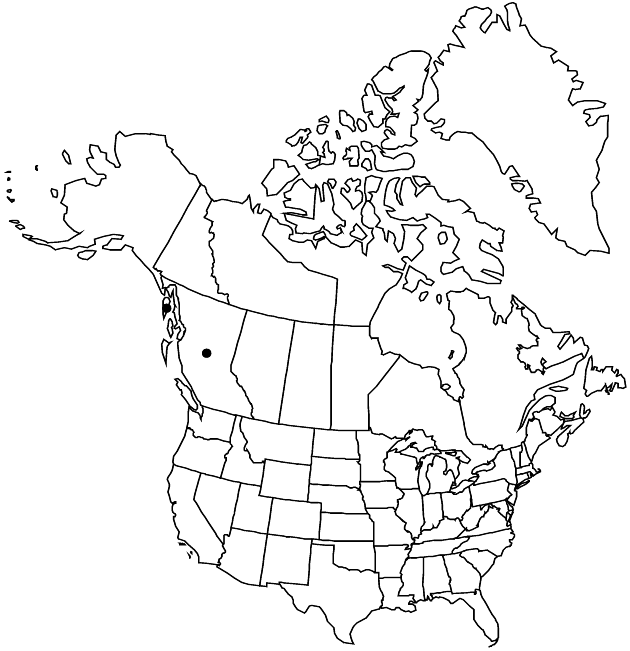Packera subnuda var. moresbiensis
Sida 21: 289. 2004.
EndemicConservation concern
Basionym: Senecio cymbalarioides subsp. moresbiensis Calder & Roy L. Taylor Canad. J. Bot. 43: 1399. 1965
Synonyms: Packera moresbiensis (Calder & Roy L. Taylor) J. F. Bain S. cymbalarioides var. moresbiensis (Calder & Roy L. Taylor) C. C. Freeman S. moresbiensis (Calder & Roy L. Taylor) G. W. Douglas & Ruyle-Douglas S. resedifolius var. moresbiensis (Calder & Roy L. Taylor) B. Boivin
Treatment appears in FNA Volume 20. Treatment on page 600.
Revision as of 20:45, 27 May 2020 by imported>Volume Importer
Basal leaves: bases usually contracted, sometimes tapering. Heads (1–)2–3; Phyllaries reddish or cyanic, hairy (hairs reddish, multicellular). 2n = 90.
Phenology: Flowering late Jun–late Jul.
Habitat: Open grass/sedge meadows, near streams and lakes, mossy slopes, peat bogs
Elevation: 0–900 m
Discussion
Of conservation concern.
Packera subnuda var. moresbiensis is known only from the extreme southeastern coast of Alaska, the Queen Charlotte Islands, and northern Vancouver Island.
Selected References
None.
Lower Taxa
None.
